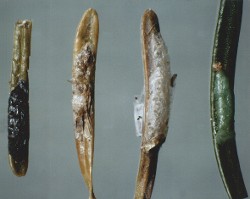Adaptive Environmental Management
In 1978 its project leader, C.S. (Buzz) Holling, and his colleagues published Adaptive Environmental Assessment and Management, co-sponsored by IIASA and UNEP, which documented their new approach to the dynamics of ecosystems.
The ground-breaking book elucidated for the very first time the vital importance of an adaptive rather than a reactive approach to environmental planning and management—in effect, that systems must take uncertainty into account rather than eliminate it. “If surprise, change, and the unexpected are reduced,” the book warns, “systems of organisms, of people, and of institutions can ‘forget’ the existence of limits until it is too late.”
An encounter with a crocodile on a mountainside may not be very likely, but nature is full of surprises. And, when environmental management fails to allow for them, the results can be disastrous.
A number of environmental experts now believe that adaptive environmental assessment and management is the most promising approach to environmental problems yet to be devised. Its champions say the approach offers effective and relatively inexpensive assessment procedures for determining the impacts of environmental proposals. And after programs have been initiated, it apparently keeps management flexible.
The approach evolved from research on renewable resource problems in different national settings—pest management systems in Canadian forests, disease control in Venezuela and Argentina, range and wildlife management in the USA, oceanographic problems in Europe, ecological process studies in the USSR, and others, the findings of which form the basis of Holling’s book.

IIASA worked with scientists and forest managers to design ecological policies to control the spruce budworm which periodically devastates large areas of coniferous forest.
The research and techniques were also summarized for readers from government and industry in IIASA’s first Executive Report, Expect the Unexpected. According to the executive report, adaptive environmental assessment and management brings together representatives of the constituencies directly involved to respond to environmental problems. Change is an integral part of the program from the earliest planning stages, setting the stage for an ongoing, evolving program rather than a one shot attack on the problem. Knowledge acquired in efforts to assess, regulate, manage, and monitor man’s environmental impact is used to improve these efforts.
To keep the proceedings open to change, the adaptive approach depends on close interaction among people. As the adaptive approach is meant to resolve conflicts, agreement is not sought at the outset. Open discussion among individuals representing possibly conflicting factions promotes the development of programs that are both workable and flexible, and external experts occasionally participate in the workshops to offer fresh views and objective evaluations of the progress.
Flexibility is also encouraged by keeping the accumulation of data to an essential minimum. This information is converted into one or more computer models. Then, as key links between factors are identified, needs for new data to define these relations more precisely are likely to emerge. Alternative models can be tested and recommendations made.
The process involves continuing interaction among managers, experts, and analysts. Upon completion of the project, the managers return to their organizations with a set of well-articulated plans. Then monitoring begins, allowing management to evaluate the program continually and adjust to the unexpected when it occurs.
ECOSYSTEMS SERVICES AND MANAGEMENT (ESM)
IIASA's research into ecosystems management continues today in the ESM program


